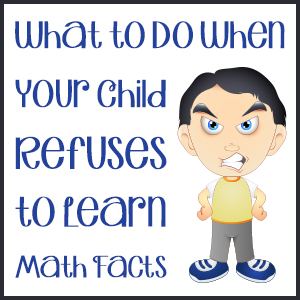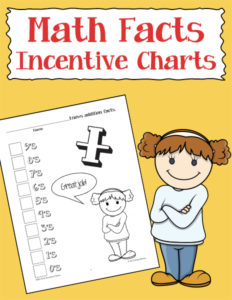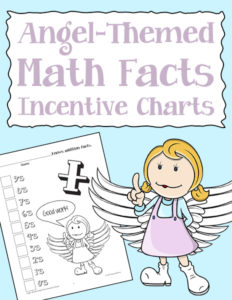
Do you have a child who doesn’t want to learn math facts?
I feel your pain.
When I was a classroom teacher, I had tons of students who thought that learning math facts was about as fun as watching the grass grow.
In fact, my OWN two kids whom I homeschooled weren’t overly fond of memorizing times tables.
Over the years though, I picked up some handy dandy tricks for making math facts a bit more bearable for my kids and other people’s kids.
Let me share those with you now.
*This post contains paid links. I earn a small commission from the sale of products purchased via these links. Please see my disclosure for details.
Purpose
First of all, kids need to know there is a REASON for memorizing the facts (and other aspects of math), otherwise it will seem pointless to them. If it seems pointless to them, they will put up a 10 foot wall in their minds with the words, “I don’t need it so I’m not learning it” emblazoned on it. To prevent that wall, you need to explain and demonstrate the reasons WHY knowing math is useful.
One thing that you can do to show your child the value of math is to demonstrate how you use your own math prowess (I know you’ve got it!) in your day-to-day activities. Explain how you double or halve a recipe when cooking. Describe how you determine which item in a store is the best deal, or how you keep track of how much you’re spending in your head when you go on a short shopping trip. (Or even on a monthly shopping trip! I’ve done that. Talk about major mental math!)
Another thing that you can do is let your child know that memorizing the facts now is a HUGE time saver for his later math exploits. When he’s doing bigger and more challenging problems in the future, he’s not going to want to be hindered by a mind that can’t whip up the answer to 5 x 6 in a matter of seconds. Tell him that speed is glorious when it comes to math facts.
Make It Fun
Math facts don’t have to be boring. Really. Nowadays, there are plenty of resources available for making math facts more fun including computer games like Timez Attack, math songs like Schoolhouse Rock, card games like Quick Pix, and board games like Totally Tut. I have some printable math games here including flash card games that fit the unique needs of each learner.
The Mind is Faster Than a Calculator
Teach your child that when it comes to math facts, using his mind is faster and more convenient than using a calculator. Here’s a little activity that you can do with him that will prove this point.
Have two of your kids stand up together. Give one of them a calculator. Make sure the one without a calculator knows some math facts. Tell them, “I’m going to show you how using your brain is faster than using a calculator. I’m going to hold up a flashcard. You both have to race to tell me the correct answer, however _____, who is holding the calculator, must solve it using the calculator while _____ uses his mind.” Now, hold up a flashcard and see who wins. Do this several times. Your kids will get the point.
Use Incentive Charts
Everyone likes to see progress towards a goal, and math facts mastery is a BIG GOAL! Help your child see his progress and accomplishments by using incentive charts. If you need some inexpensive, printable charts, I have a set of Math Facts Incentive Charts here for only $1.00. If you like angels, I have some Angel-Themed Math Facts Incentive Charts too.

|

|
If none of these methods work to motivate your child, then sometimes you just have to smile and let him know that learning math facts just has to be done…like cooking his meals.
If you have other struggles with teaching your child math, you might want to check out Susan Evan’s Overcoming Math Frustration. She offers tips for motivating your child to do math as well as suggestions for making math more hands-on and exciting!







